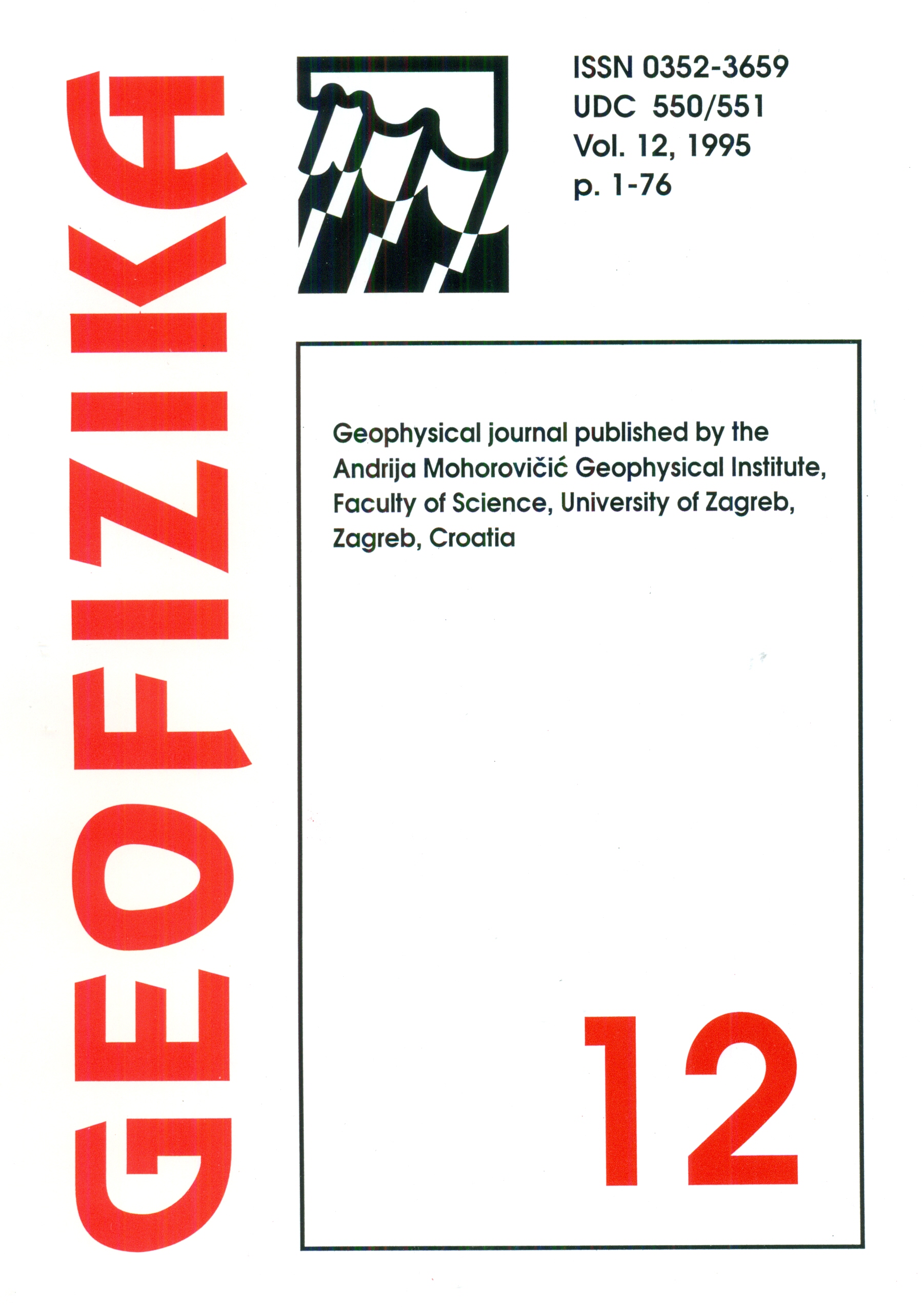Atmospheric static stability in respect to static energy changes
Keywords:
Atmospheric static stability, isentropic analysis, static energyAbstract
This theoretical study deals with the static part of the total energy and tends to explore the functional relationship between its changes and atmospheric static stability. It is shown that a dimensionless energy number may be defined in terms of isentropic analysis to be the function of static stability with recognizable physical meaning. Its mathematical properties indicate that this particular dependence may be described by a bilinear fractional function taking a form of an equilateral hyperbola with asymptotes parallel to the coordinate axes. Its unstable branch corresponds to the higher rate of change of static energy and lies in the first quadrant, while in the third one its lower rate is related to the stable branch. Asymptotic solution of considered theoretical problem implies that the transition from stable to unstable branch may appear only by an infinite jump and holds an intriguing resemblance with either the quantum transition between two energy shells by the absorption or emission of energy or the transition from stable to unstable regime of the general atmospheric circulation.
Downloads
Published
Issue
Section
License
Copyright (c) 2021 Geofizika journal

This work is licensed under a Creative Commons Attribution-NonCommercial 4.0 International License.

